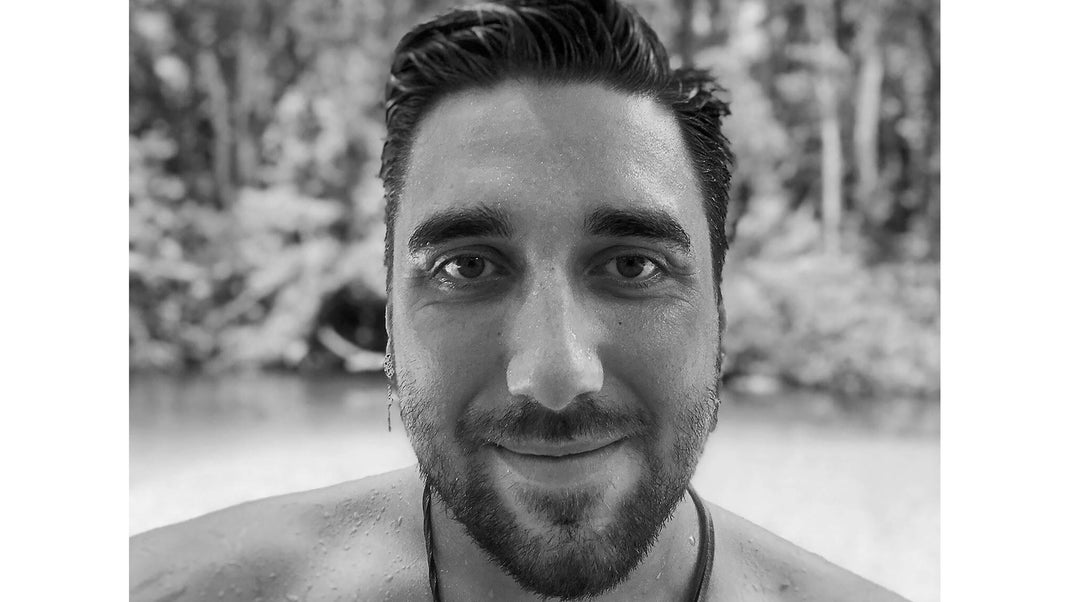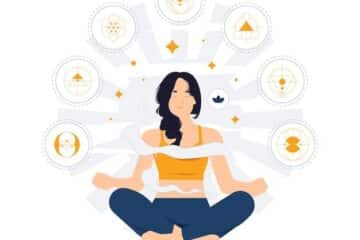For many people, yoga is a way to find peace and calm in their lives. For Michael Burns, it was the key to finding himself after years of being bullied by his fellow townspeople for being gay. Here’s how he found the strength to embrace himself despite what others thought.
I am a gay man who has known my sexual orientation since I was 10 years old. Back then, I befriended the popular guys at school because I had crushes on them. I loved adorning my mom’s purple chiffon sundress. I was a ballet dancer. Watching the girls who practiced in the class before mine, I looked up to their power and femininity. But I didn’t dare tell anyone my secret, for fear of rejection by my family and community.
Growing up in Colorado Springs, where megachurches ran conversion therapy camps (the practice was finally outlawed in May, making Colorado the 18th state to ban conversion therapy for minors), I’d overheard plenty of men say horrific things like, “I’ll kill a faggot if they ever try to touch me.”
Despite all that, at 16, I decided it was time to start the coming-out process. I remember seeing my two best friends, both female, cuddled up on the couch with their boyfriends and yearning for a fulfilling romantic relationship of my own. I came out to them first, and they were absolutely elated for me. Within two months, they fixed me up with a cute guy who became my first boyfriend. Next I decided to tell my coworkers. They, too, made me feel so accepted that I started building up the courage to tell my parents and my older brother. I believed my family would offer the same support.
It happened by accident: My parents caught me kissing my boyfriend in the driveway—we were teenagers, after all. That night, my dad drove my boyfriend home and told him he would never see me again; my mom cried and told me how much I’d disappointed her. I was grounded for a year, and they started chastising me for smiling, laughing, or talking in my naturally effeminate way.
Since I had flamboyant mannerisms, my sexual orientation didn’t seem to be much of a secret. Strangers made fun of me. Families moved tables at restaurants so as to not be near me. Sometimes, if I glanced at a man in passing, he’d puff up and say something like, “Keep looking at me, and I’ll beat you to a pulp.”
I started wearing baggy jeans and hoodies—anything that I could hide behind. I tried to deepen my voice and quit smiling. My resentment was quickening into anger. For years, my parents forced me to take part in sports and activities that they considered masculine, such as baseball, basketball, and karate, even though I was truly only interested in ballet. While everyone was required to watch my brother’s wrestling matches, only my mother (begrudgingly, I felt) attended my recitals—my father made it clear that he wasn’t interested. It was devastating to know my dad deemed me a lesser male, so much so that he largely removed himself from my life.
Furious that I had to take on an alternate personality just to avoid altercations with men who felt uncomfortable around me, I fell into a deep, manic depression. I was mixing sleeping pills, mood stabilizers, and over-the-counter cold medications I had found in my parents’ medicine cabinets. I was huffing any solvent-based chemical I found tossed in the garage. I obsessed over the idea of ending my own life. (Gay, lesbian, and bisexual high school students are more than four times as likely to attempt suicide and nearly three times as likely to make a plan to die by suicide than their heterosexual peers, according to the Centers for Disease Control and Prevention.)
When I turned 17, an opportunity came along that changed my life. An artistic director saw me perform at a dance convention and recruited me to dance in her professional ballet company. (Years later, she’d tell me that she fell in love with the way I’d poured my anguish and fury into my artistry.) I decided to finish high school online so I could explore dance full time. Because I was still grounded, I had to be at home when I wasn’t at the dance studio working. But it provided me with a cover to recuperate my social life: I’d tell my parents I was at work when I was out with my friends and my boyfriend.
The professional dance world—in which no one is ever good enough—was a refuge in some sense, but it also created even more mental dysfunction. I danced in front of a mirror all day observing my body, which only reinforced the idea that I needed to be something other than myself: skinnier, stronger, better at high jumps.
After several months of dancing, I started attending hot power flows at a local yoga studio as a way to cross-train and prevent injuries. One day, after I’d been practicing five times a week for about a year, my male yoga teacher guided us into Child’s Pose and asked, “When are you going to stop running away from yourself and begin the long journey home?” And just like that, I started sobbing. I’d run so far away from my identity that I didn’t even know how to start looking for myself again. I looked to my yoga teacher: With his eloquent philosophy and his confidence in who he was—long hair, flowing clothing, and gentle mannerisms—he started to show me that men could be vulnerable and accepted. He was a metaphor for possibilities beyond my struggle.
After high school, I danced on cruise ships, traveling to Europe, New England, the Caribbean, and Alaska. I also went to India to visit ashrams and completed teacher training in yogic studies in traditional Hatha Yoga. On the ship, I’d gather people and lead yoga classes, which helped me sort through my life. If I noticed I was feeling depressed, I’d use yoga to help unpack it. This allowed me to ask myself: “What does unfettered Benny look like?”
Fifteen years later, I returned to Colorado Springs hoping to create a life teaching yoga while training to be a massage therapist. After finding success around the world, I thought I’d get a second chance at experiencing unconditional love and acceptance from my family. My yoga classes were gaining traction, and I’d met a man—an energy healer—who would become my fiancé.
But my parents were unwilling to speak with me about our painful past. As a yoga teacher, I had followed in the footsteps of my first teacher, who guided others to their true selves, where they have always been whole. Through this work, I realized I had to come to terms with the fact that in my hometown I was still boxed into an identity that hadn’t evolved since I’d left. To step into my full brilliance, I had to flee once again—and cut ties with my parents. It was difficult but empowering because I yearned for a joyful, authentic life.
Today, my partner and I are exploring what it means to be free in a new city—St. Petersburg, Florida. We’ve both taken a step back from our work healing others to allow ourselves the time and space to fully recover from past traumas. Enjoying a slow-paced lifestyle near the beach, we paint, sculpt, draw, write, cook, dance, and do whatever else bubbles up in our hearts. Together, we are able to lift each other up to our highest purpose.
More recently, there have been a lot of men in my life who are ready to do the work necessary to create a new paradigm for living consciously, free from damaging expectations and stereotypes. They listen to the conversations that call out their toxic behavior and hold themselves and others accountable. My days of enduring bullying or aggressive comments are behind me—or perhaps I don’t notice them anymore. I’ve developed a deep love and compassion for all men, because I understand how trying to live up to societal expectations leads them astray, to a place where they cannot freely express emotion or live their highest truths.
When I consider where I started from and where I stand now, I am changed. Today I have the freedom to be, to express, to be seen, to show up, and to stand strong in who I am. Yoga never gave me the answers—it encouraged me to explore and find them within myself.
About the author
Benny James is a yoga teacher, massage therapist, and inspirational speaker in St. Petersburg, Florida, and founder of the alternative wellness company Maha Mountain. His mission is to help others find the inner strength to uncover a life that they love.
Conclusion:
Here we have shared the story of Benny James and his journey to come out in a homophobic community. Here’s how yoga helped him find peace, and today he works as a yoga teacher in St Petersburg Florida helping others embrace their true selves.



